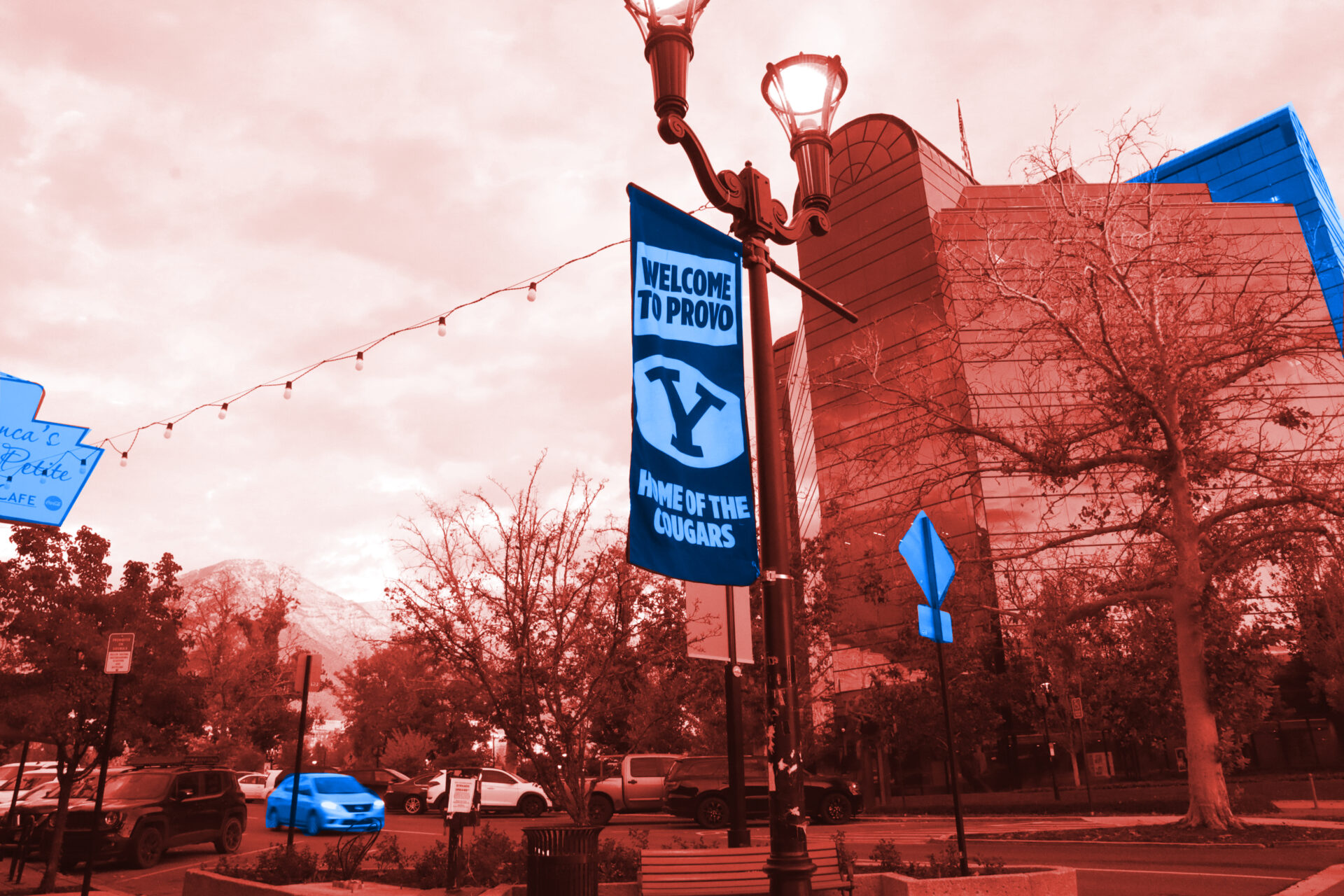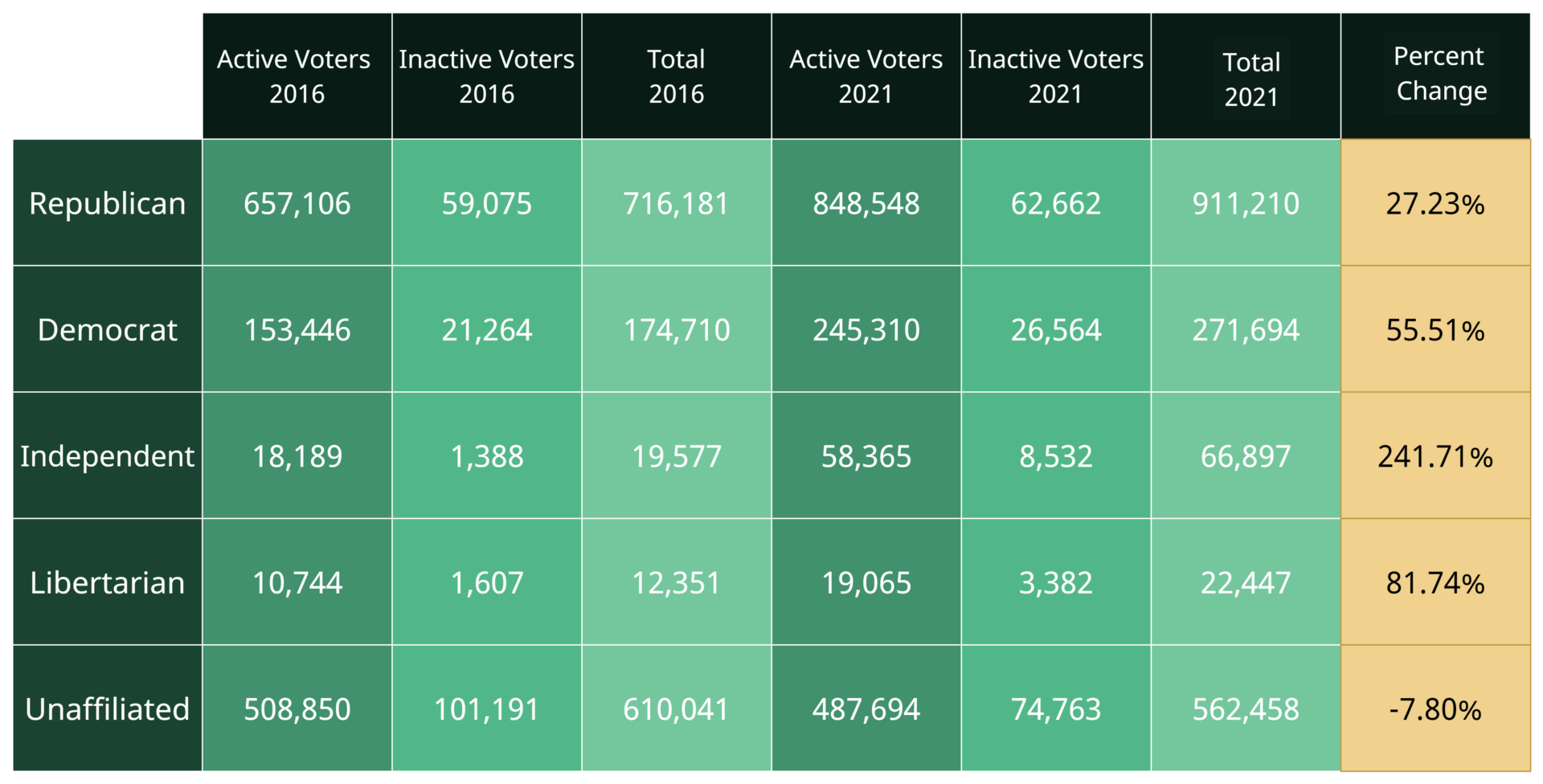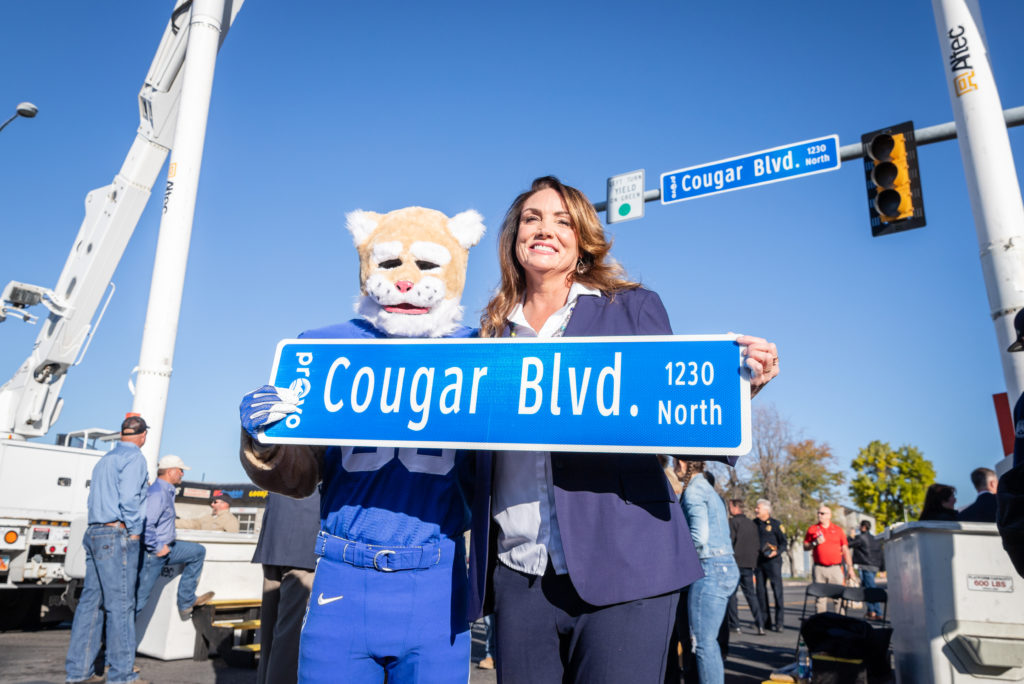
The Provo Municipal 2021 election is on Nov. 2 and residents will cast votes for mayor and multiple city council seats. The deadline for online voter registration has already passed, but any Provo resident can register to vote in person on Election Day.
These municipal elections are nonpartisan, but Utah has a red history as a majority Republican state. Despite the red majority, many moderate candidates on both sides of the political spectrum are jumping into the arena to represent shifting views of some Provo citizens. This election has the potential to either push Provo away from its legacy toward becoming more moderate, or it could keep Provo solidly in the red.
Provo’s red legacy
Provo has long been one of the reddest cities in the nation and even got ranked as the number one most conservative city in 2005 by the Bay Area Center for Voting Research. The 2008 presidential election reinforced this dynamic, with Utah County voting 78% for John McCain and only 18% for Barack Obama, compared to the overall state of Utah voting 62% McCain and 34% Obama.
By 2016, Provo was no longer in the top 10 most conservative American cities, ABC4 reported. But Utah County held strongly red with the city of Eagle Mountain ranking 10th most conservative in the nation. For that year’s presidential election, Utah County voted 51% Donald Trump, 29% Evan McMullin and 14% Hillary Clinton, showing a slight departure from strictly Republican trends with so many votes going to McMullin, an Independent.
In 2020, Utah County voted 67% Trump and 26% Joseph Biden. The entire state of Utah was slightly less red than Utah County with 58% of voters for Trump and 37% for Biden. Although still sustaining a majority for the Republican Party, that election also included the highest percentage of Utah votes for a Democrat since 1964 when almost 55% of Utah votes were for Lyndon B. Johnson.
According to KUER, a “blue wave” is hitting Utah where certain areas are slowly voting more for Democrats, including five Provo voting precincts that turned blue during the 2020 presidential election. BYU sociology professor Jacob Rugh collected data on Provo voting trends to show the slow shifting of votes in the neighborhoods around the BYU campus.
While most of the candidates for both mayor and city council are Republican or conservative-leaning, some are more moderate or even liberal-leaning than others.
Party affiliation, however, can be hard to tell for both city council and mayoral elections because of the nonpartisanship. Provo’s Municipal Code says, “One nonpartisan candidate shall be elected from each Municipal Council district,” which means most city council candidate campaigns focus on their issues and platforms and don’t identify themselves with a specific party.
Will the election and support of more moderate candidates continue the decline of Provo’s red legacy or will the conservatives hold the line against the supposed “blue wave” coming in?

Is Provo actually moderating in politics?
Utah County Democratic Party Chair Kevin Perez said right now is an exciting time for Democrats in Utah County. He said Provo isn’t the only place in Utah County seeing change, but it is where change is the most visible because it is the biggest city in the county.
He said Provo’s overall changing demographics are causing this voter shift and bringing in more minority and progressive voters.
“It’s the growth, the immense growth and people are coming in from out of state and more urban areas leading to a turn of blue voters,” Perez said.
Provo’s growth is currently on track to make it similar in size to Salt Lake City proper in the near future, Perez said, and the urban problems that come with big cities are issues the leaders haven’t dealt with as much until recently. Some of these issues include homelessness, income inequality, access to resources, social economic issues, education and more. Because of this, Perez said many voters are now looking to Democratic leaders who run on a lot of positions that deal with social impact in the community.
Skyler Beltran, the Utah County Republican Party Chair, disagrees about the vote shifting and he said the Republican party is not losing any ground.
Beltran said especially when looking at the voting precincts who voted blue, it only added up around to 1,300 votes and was turned blue by just 500-600 people. Comparing that to the rest of the county, “we definitely are not losing our red stronghold.”
Provo has good, strong, hardworking Republicans representing the city in state and federal government, Beltran said, “but ultimately, partisan politics don’t come into play at the local level.” Because the municipal leaders deal more with day-to-day administrative operations rather than political decision making, the partisan politics aren’t really involved, he said.
Perez said he thinks the outcome of the 2020 election and the turmoil surrounding it has dissuaded a lot of moderate voters from the Republican side. During the 2020 election, Perez said he had requests for Democratic candidate yard signs up and down the valley from Eagle Mountain to Santaquin.
“These middle-of-the-road voters, many who are registered Republicans, they’re moving sides,” Perez said. “I have lists of dozens of people who are changing teams because they don’t like what’s on the other side.”
Beltran said because Trump was such a polarizing figure, it it hard to use the data from that election. The polarizing personality made some defect from Trump, but not necessarily defect from the Republican party as a whole, he said.
In the end, Beltran said it’s hard to create a “litmus test” to perceive whether candidates are moderate or more conservative. But knowing their party doesn’t matter as much as people forming their own opinions on who they will support since each person has their own matter of preference for candidates.
“We need to realize we probably agree with the people much more than we disagree,” he said.
Who’s running in this election?

Mayoral election
The current primary election polling for Utah County shows that Provo Mayor Michelle Kaufusi is in the lead with 68.06% of the votes. Kaufusi, a Republican, is the 45th mayor of Provo.
The former school board member values funding for education and is straightforward with residents on how government funds are being used, she said on her website. According to her campaign, while fixing today’s problems, she is also focused on “anticipating future issues and planning cost-saving solutions.”
The candidate right behind Kaufusi with 15.69% of the votes in the primary election is Kenneth Dudley, a software engineer who is a proclaimed “conservative and patriot.” On his website he says he promises to “work within the guidelines of the Constitution to preserve and restore freedom and liberty.”
Dudley is also known for being the man who was shot in his car during a Black Lives Matter protest in June 2020 in downtown Provo. Because of this experience, his website says he was prompted to run for mayor and he now is committed to securing the streets and homes of Provo and ensuring safety for citizens and their families.
City Wide Councilor
The first city council seat up for grabs is City Wide I Councilor. Candidates Katrice Mackay and Aaron Skabelund are neck-and-neck in their race with primary election results at 37.98% and 32.68% respectively.
Mackay graduated from BYU’s Marriott School of Business and her campaign says she is focused on listening to individual neighborhood needs, fiscal management, economic development, public safety and connecting the government with citizens to create a more unified community.
Mackay is endorsed by Vineyard City Mayor Julie Fullmer, Utah County Commissioner Amelia Powers Gardner and the CEO of Aptive Environmental, Vess Pearson.
Skabelund is a BYU history professor with positions in his campaign on safe streets, financial transparency and giving neighborhoods fewer regulations and more property rights. Although not endorsed by the political action committee Equality Utah, Skabelund was graded a B+ by them for his positions on LGBTQ issues.
Skabelund is endorsed by former City Council members Sherrie Hall Everett and Hal Miller, and current City Council member David Harding. His website highlights his work as a nonprofit leader for Provo Bicycle Committee and his service as a neighborhood chair for several years.
City Council district seats
In District 2, current district council member George Handley is running unopposed. Handley is a BYU humanities professor and works as the associate director of the Faculty Center.
His campaign says he will be a leading voice for civility, inclusion and nonpartisan cooperation as well as advocating for enhancements of the environment, creating solutions for the housing crisis and being prudent and reasonable in public investments. He is endorsed by former council members George Stewart, Dave Knecht and Kim Santiago.
District 5 has attorney Rachel Whipple leading in the primaries with 51.37% and former Provo Fire Chief Coy Porter following with 37.04%.
Whipple’s issues of focus deal with the quality of life for Provo residents “in all stages of life.” Her website says she is focused on developing infrastructure, adapting and updating zoning laws as the population grows, promoting liberty and justice for all and encouraging diversity in age and experience.
Whipple is officially endorsed by the political action committee Equality Utah, who gave her a grade of A+ for her stances on LGBTQ issues. Her website shows she is also endorsed by the nonprofit Conserve Utah Valley.
Porter’s campaign focuses on air quality, transportation, affordable housing and density, water quality and quantity, and creating strong neighborhoods. His campaign said he also hopes to make Provo proactive in fostering a belief in family and community by creating the “Provo City Family” and honoring the legacy of Provo.




